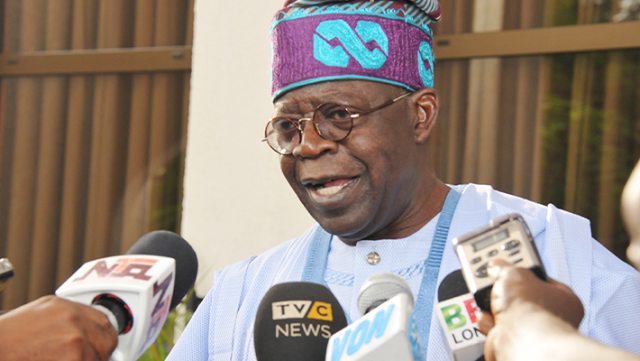ABUJA, Nigeria - President Bola Tinubu has reiterated his commitment to undertaking bold and comprehensive reforms to reposition the country’s fiscal architecture for resilience, inclusiveness and economic growth.
Tinubu spoke on “Taxation for development, policies, law and implementation” during the 27th Annual Chartered Institute of Taxation of Nigeria (CITN) Tax Conference in Abuja on Tuesday.
The president, represented by Minister of State for Finance Doris Uzoka-Anite, said the central pillar of the reforms was taxation.
”I believe that a robust, transparent and fair tax system is essential not only for financing government operations but also for creating an environment of accountability, stability and long-term development.
”Accordingly, the government has taken deliberate steps to restructure and modernise our tax administration and legal framework.
”In this regard, the establishment of the Presidential Committee on Fiscal Policy and Tax Reforms marked a significant turning point,” the president said.
He said the committee was tasked to simplify the tax system, broaden the tax base, curb leakages and ensure alignment between fiscal policy and national development objectives.
“Members of the committee worked tirelessly to achieve their mandates, which include addressing issues of multiplicity of taxes and improving coordination between the federal, state and local government tax authorities.
“The federal government also pushed forward with the Economy Stabilisation Bill, which has now also been passed,” he said.
He said the success of any reform depended on implementation, adding that the conference presented an opportunity for all stakeholders to explore how policies and laws can be translated into practical and measurable outcomes.
Vice President Kashim Shettima said the theme was evidence that the CITN acknowledges the centrality of government revenue generation in achieving growth and development for any country.
Shettima was represented by the Special Adviser to the President on Economic Affairs under the Office of the VP, Tope Fasua.
He said the focus on the tax aspect of revenue conferred a dual responsibility on the taxpayer and the tax administrator (government.
” The need for a stakeholder point of view is why the Presidential Committee of Fiscal Policy and Tax Reforms is made up of professionals from diverse walks of life,” he said.
The 16th president of the CITN Council, Samuel Agbeluyi, said tax was an important factor in every economy.
Agbeluyi said taxation was not merely a tool for revenue generation but a powerful instrument for promoting equity, redistributing wealth, incentivising growth and funding public services.
“However, for taxation to truly serve these developmental goals, policy formulation, legal framework, and implementation mechanisms must be harmoniously aligned,” Agbeluyi said.
He said Nigeria faced significant challenges from the economy to security and social dimensions, adding that there was a dire need for sustainable solutions.
“At the heart of these solutions lies our tax system,” he said. “In this regard, one cannot overlook the commendable effort by the Tinubu-led administration.”
“The work of the Presidential Committee on Fiscal Policy and Tax Reforms reflects a resolute commitment to charting a course for sustainable socio-economic development through an effective and efficient taxation system,” he added




















